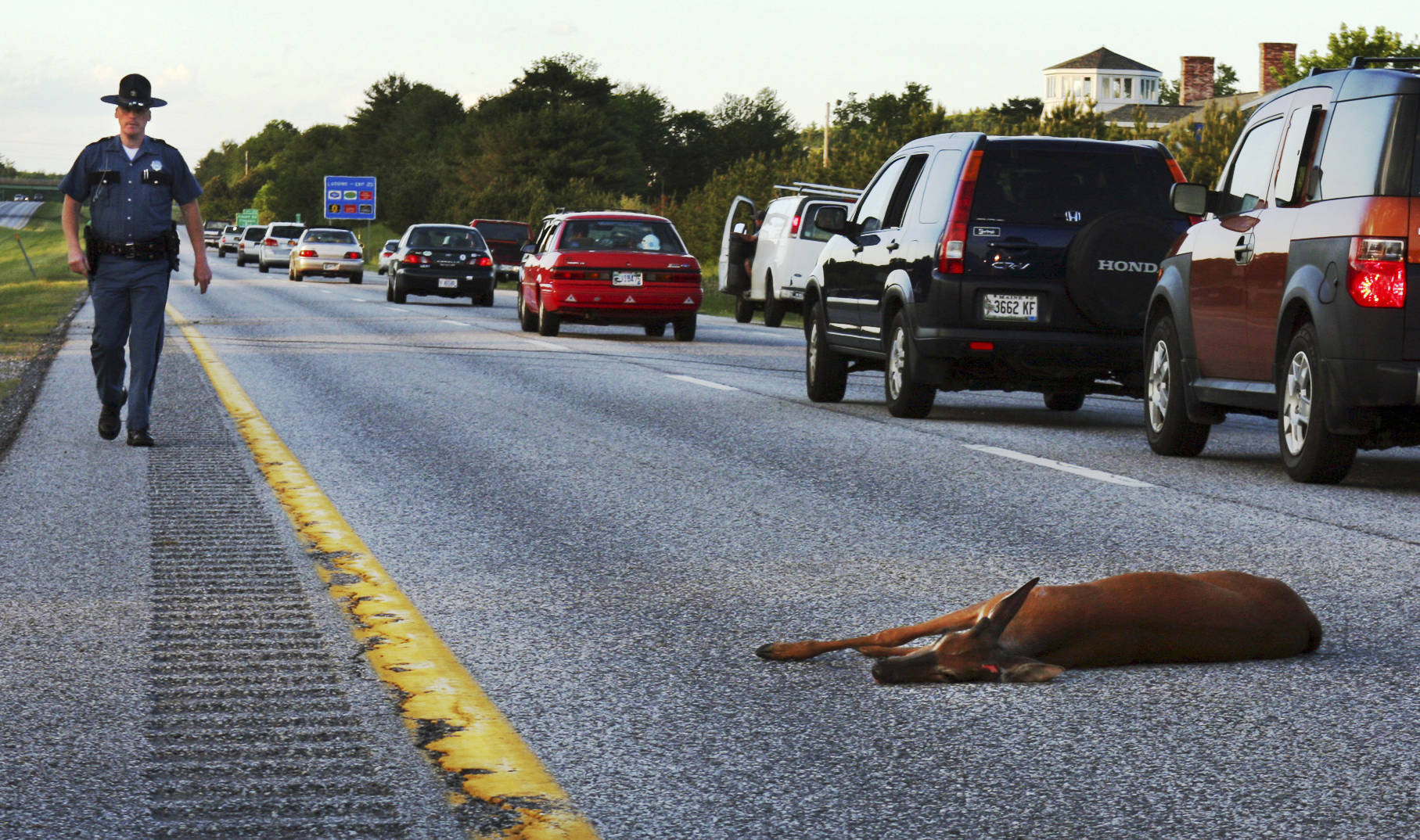By ANDREW SELSKY
Associated Press
SALEM, Ore. — Some folks in Oregon might not want to ask, when served an elk burger or a venison steak, where the meat came from.
Under a roadkill bill passed overwhelmingly by the Legislature and signed by the governor, motorists who crash into the animals can now harvest the meat to eat.
It’s not as unusual as people might think. About 20 other states also allow people to take meat from animals killed by vehicles. Aficionados say roadkill can be high-quality, grass-fed grub.
“Eating roadkill is healthier for the consumer than meat laden with antibiotics, hormones and growth stimulants, as most meat is today,” noted People for the Ethical Treatment of Animals, or PETA.
Washington state began allowing the salvaging of deer and elk carcasses a year ago. Pennsylvania might top the country in road kills, with Oregon wildlife officials telling lawmakers that the eastern state had over 126,000 vehicle-wildlife accidents in 2015.
“We are at or near the top of the list. We have a lot of roads and a lot of deer,” said Travis Lau, spokesman for the Pennsylvania Game Commission, though he added the total number was uncertain.
Pennsylvanians can take deer or turkeys that are killed on the road if they report the incidents to the commission within 24 hours, Lau said in a telephone interview.
Gov. Kate Brown signed Oregon’s bill last week after the Senate and House passed it without a single “nay” vote.
But a few Oregonians voiced opposition.
Vivian Kirkpatrick-Pilger, a Republican Party official in mountainous, forested Josephine County, told legislators that people have been salvaging roadkill meat in Oregon for years — since vehicles and animals have been colliding — and they’ve never needed a law or permit to do it.
Actually, the Oregon Department of Fish and Wildlife said that before last week, the only people allowed to keep roadkill were licensed furtakers, and no one — not even licensed hunters — could keep game animals found as roadkill.
The rules were aimed at discouraging people from hitting a game animal with their vehicle to take the meat or antlers. “It’s not a legal method of hunting,” the department’s website says.
Les Helgeson, of the community of Beaver, near the northwest coast, told legislators that roadkill “would not be palatable, much less pass any sense of health standards for human consumption.”
But those who have sampled it say otherwise.
Todd Toven of Castle Rock, Colorado, posted a video on YouTube showing himself carving up a deer that had been hit by a vehicle on a highway and finished off by a deputy sheriff’s bullet. Toven made it into venison sausage.
“A lot of who people don’t hunt hear the word ‘roadkill’ and they get turned off,” Toven said. “We’re talking perfectly clean, cold meat.”
Oregon’s new law calls for the state Fish and Wildlife Commission to adopt rules for the issuance of permits for the purpose of salvaging meat for human consumption from deer or elk that have been accidentally killed in a vehicle collision.
The first permits are to be issued no later than Jan. 1, 2019. The antlers must be handed over to the state’s wildlife agency.

